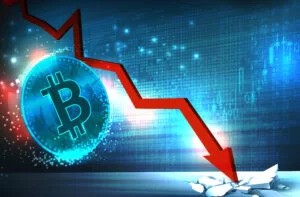Healthcare & Blockchain: Techies Prepare for a New Year, a New Era

Blockchain is the rage these days. Developers and those who understand Blockchain and its application in commercial use are in demand today. The passion and desire for learning within the Blockchain community of highly qualified developers is essential in taking a leading role in the Blockchain and AI revolution. Bringing together a local ecosystem of Blockchain and AI developers, data scientists, researchers and academia to look at Blockchain and AI trends, technology, use cases and opportunities is what many are calling the fourth Industrial Revolution.
As you toast to what promises to be a historic and grand new year, take a moment to give thanks to what has been a remarkable and miraculous new year. Blockchain technology, a decentralized solution, has not disappointed. Ethereum is a game changer. Blockchain effectively puts a permanent fix on cryptography, which has been done through smart band aids until now.
Healthcare is at the forefront of this developing technology. Blockchain could change everything in terms of patient monitoring (i.e. doctors would be financially incentivized to update patient profiles on a universal database), drug consumption (i.e. prescription tracking and what the patient has bought in a private manner), studies (i.e. Blockchain data in such a quantity is remarkable for an epidemiologist), etc. All of that in a secure, private and resilient manner is something that no company, not even tech giants or agencies, can offer.
In healthcare, imagine if I have a private key (either under an ID number or a card with a RFID and a pin) with which I can authorize my doctor to edit my medical file stocked on the Blockchain with his observations and analysis/imagery. Once he updates my file he is immediately rewarded by receiving coins through a smart contract which takes funds from the state and the insurance company covering the person (fail safes would be placed to prevent abuses). My doctor doesn’t need to go through endless and discouraging bureaucracy to be rewarded, all of the information is retained and can be fully accessed by the next doctor, no matter if he works in the public or private sector, with just providing my card/ID. Similarly, this would happen with my pharmacist who would receive currency if he “registers” prescriptions. This is all accomplished without a single middleman involved.
We’re still in the investment stage of this new technology. Ten years to revolutionize finance worldwide is nothing. By 1993 the internet was around for ten years which provides perspective in the potential growth for Blockchain. Most ancient crypto is ten times better than any financial transaction systems used now. The possibilities afforded by Blockchains are mostly augmentations of existing concepts, making things more shared and connected, making for strong viability.
Companies will start using their own Blockchain. Everything that relies on a public marketplace to be competitive will not change. Also, it’s often overestimated how much inertia happens inside companies, like how Microsoft lost opportunities to Google and Facebook or how Walmart is being made irrelevant by Amazon. In fact, in order to operate in the Blockchain, you do not need to download an entire Blockchain to use it. Coins like Sia, Substratum, Shift, or Filecoin are one of the tens of Blockchain projects doing decentralized hosting or storage.
Ripple is an example of another coin utilizing Blockchain technology. Ripple’s technology isn’t exactly Blockchain, but is built on top of Blockchain technology. That’s still an impressive accomplishment of Blockchain technology. Ripple solves a trillion-dollar problem in seconds that used to take 3-5 days to solve. Blockchain is one of those things that requires a nucleus of critical mass, like the internet. It’s going to happen.




